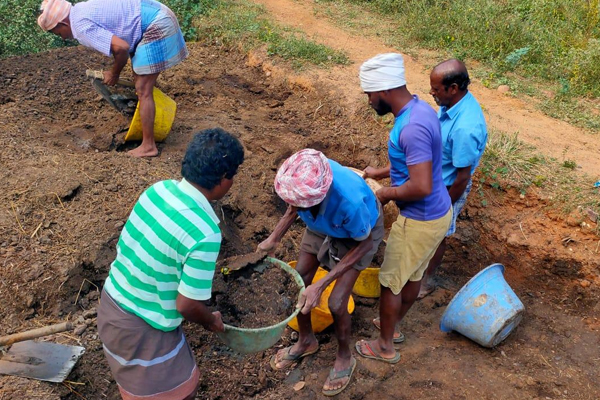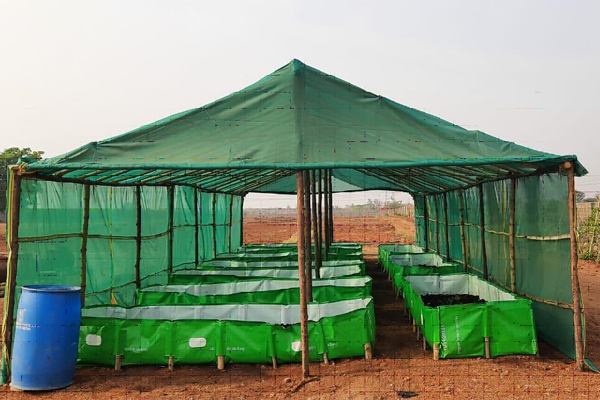Benefits Of Vermicompost
- Vermicompost is rich in NPK, micronutrients, and beneficial soil microbes, including nitrogen-fixing bacteria, mycorrhizal fungi, phosphate-solubilizing bacteria, and actinomycetes
- Enzymes such as amylase, lipase, cellulase, and chitinase present in vermicompost break down organic matter, releasing nutrients for plant roots
- Vermicompost acts as a growth promoter and protector for crop plants, nurturing soil with plant growth hormones like auxins and gibberellic acid
- It functions as a soil conditioner, leading to the overall improvement of soil quality and farmland, even in degraded and sodic soils
- Soils treated with vermicompost have significantly higher electrical conductivity (EC) and near neutral pH
- Vermicompost exhibits high porosity, aeration, drainage, and water holding capacity, facilitating strong nutrient absorbability and retention
- It influences various yield parameters, including seed germination, enhanced seedling growth rate, flowering, and fruiting of major crops and vegetables
- Well-processed vermicompost helps to suppress weed growth by killing weed seeds present in the soil, reducing the need for additional weed control measures
- Vermicompost is free-flowing, easy to apply, handle, and store, and it does not produce unpleasant odours
- The presence of earthworm cocoons in vermicompost increases the population and activity of earthworms in the soil, further benefiting soil health and nutrient cycling


